These days when you talk about industry few people will think of England, the home of the industrial revolution. Tatung Corporation, the only ROC company to have built a factory in Europe, has nevertheless established its base in Britain, in a small town that doesn't even have a Chinese translation--Telford.
Unlike other traditional English towns, Telford doesn't have quaint brick buildings and stone "streets." What is here is a complex highway system and modernized factories.
"This is the only place in all of Europe where one can see the ROC flag hanging outdoors," says Nickle Ni, a young engineer just transferred from Taipei, proudly.
Tatung, which has set roots in England already for ten years, has recently had its own proud achievement: it has become, with Europe's three largest consumer electronics products manufacturers, the contracted manufacturer for England's satellite television broadcasting corporation. According to Senior Vice President C.P. Chou, this contract alone will reach 300 million English pounds. The name recognition and product image acquired through this contract couldn't be bought with ten million pounds.
According to the British way of saying it, Britain "has a deeply entrenched antienterprise spirit." Prices in England are high and labor is expensive. When Tatung at that time decided to go into Europe, there were no precedents. Why did they decide on England?
"The choice of England was mainly due to language considerations," says W.T. Lin, the second son of Tatung founder Lin Tingsheng. He points out that the decision to go to England was his father's idea. "He considered that in going to another country, language was the first condition. If you couldn't communicate, then you couldn't do business. Because English is the first foreign language of Chinese, England had priority."
"At that time I was studying in the U.S. Headquarters notified me about the investment plan and wanted me to 'take a look'" he says, laughing. "Little did I expect 'taking a look' would last ten years."
The earliest plant was not in Telford, but in Northbridge. This was the location for England's Decca corporation. In 1980 Tatung bought even the factory label, and within 18 months had turned losses into profits.
"The original managers were a little uninvolved; we're a bit more competitive," says Lin modestly. In fact, aside from him personally making decisions, Lin Tingsheng sent two key aides, Senior Vice President C.P. Chou and factory chief K.Y. Wang.
With their help, Tatung's English factory got on track. In less than two years it was decided to expand the factory. Little did they expect that the local government would set so many conditions.
"At that time maybe I was a little young, and the situation made me unhappy," Lin recalls. So he began looking for another place. Coincidentally, the Telford industrial district, only ten kilometers down the road, had just completed its infrastructure. Aside from one clothing manufacturer with 1000 employees, the others were all small-scale factories of 100-200 workers. Tatung was not only the right size (600 employees there prior to moving the factory), the products were high tech related, and thus popular with development authorities. The incentives provided included a ten-year moratorium on taxes for 100% of the capital investment.
"Looking back, at that time we were really a little too bold." To move a factory that had been established for more than ten years, the feeling of the workers was like pulling up roots. Although the distance was only ten kilometers, people were still attached to the old factory. As a result, turnover increased. Arriving late and leaving early became commonplace. And not only for workers--even high level management was like this. These severe emotional problems were not happening when the factory was purchased two years previously.
"It's just as well at that time there were not so many job opportunities, and people had to follow us. On the other hand, the new factory had a complete layout, and the work environment was better." Thinking about it Lin still seems pained.
"But we didn't know what to do. It seemed like everyone had lost something and couldn't settle down."
This situation lasted a year and naturally caused the company's operating situation to become "miserable." Consequently, some people were "fried squid" (fired) and others realized that the situation was serious and began to work hard. Fortunately it was at this time that the operations department set a new record of monthly sales reaching NT$400 million. Only then did the company get a new lease on life.
"This was a very unique experience, and made me understand the importance of a 'crisis mentality' toward an enterprise organization," says Lin. In order to develop the crisis mentality in English workers, Tatung [U.K.]LTD became entirely independent of Taipei headquarters, and the company established 36 "profit centers" with each responsible for its losses. The company also strengthened its sales activity.
In order to spread the risk, the company chose a multiple outlet strategy. If only someone was willing to cooperate, no matter how large or small the scale, Tatung would do everything possible to meet their needs. Today, in England alone there are 700 or 800 sales outlets and more than 200 in Germany.
Today Tatung has already reached a stable stage in Britain and has the prerequisites to be more selective. Only now is "sales upgrading" being planned to wash out a few smaller outlets in order to save on management costs.
Because the sale agreement at that time included even buying the product name, the name recognition and image of Decca were pretty good. So right at the start Tatung could save considerable effort. However, in order to increase the name recognition of Tatung's own label, a three wave strategy was employed.
The first wave was to use Decca, carrying the Tatung label. The second wave was for Tatung to replace the Decca label. And the third is to use Tatung to rehabilitate Decca.
"These two labels are different in market, in product classification, and in price," notes Lin. The road for Decca is popularization. The prices for Tatung are relatively higher, and in the consumer products market, because the competition from European and Japanese products is very strong, Tatung uses "Decca" to compete with European labels, and "Tatung"to compete with Japanese labels. "When they hear it, Tatung really has a Japanese flavor," says Lin.
In general, when manufacturers invest in factories abroad, research and development is left in the home country. Although Tatung's English factory "maintains very close ties" with the parent company, Lin Tingsheng believes that when one goes into a market, not only should one sell things, one still should be able to continually improve, and make the local clients more satisfied. What's more, Britain's technology is more advanced than Taiwan's. To invest there one should also absorb. Therefore, Lin strongly supported that the British subsidiary should have its own R&D.
For the past ten years, from color TV's and computer monitors to satellite TV reception systems, Tatung's English company has already risen into the ranks of Britain's high tech consumer products specialized manufacturers.
For example, a year and a half ago, Britain decided to invest 1.2 billion pounds to establish its first satellite television broadcasting company, and selected three companies out of the 65 in the world with the ability to manufacture satellite TV receivers. The three were France's Thompson, Finland's Nokia, and Britain's Tatung. Later Philips used its "connections" to get involved.
Developed for eighteen months, this new product will soon hit the market. Because orders are falling like snowflakes, the workers on the line have to sacrifice their holidays, and get to work early. When the British factory chief sees W.T. Lin, he laughs bitterly that his vacation has been vaporized by Tatung.
How has Tatung pulled it off?
"For a company that wants to make it internationally, its management philosophy and corporate culture should be compatible. There is nothing different about the style of the English managers among us." W.T. Lin points to the conference room wall where Lin Tingsheng has personally written the company's motto, and laughingly points out that next to it is his English translation. "The views 'rectitude, sincerity, diligence, frugality' are in fact not difficult for English to grasp."
Most transnational companies cannot avoid having the parent company transfer people over, and Tatung is no exception. For people who have married, the living environment is not bad. The children's education, aside from being a little weak in Chinese, is quite competitive.
The problems for single people are a little greater. It's not easy to get into the English lifestyle. Thus aside from overtime and reading, it's hard to use the time in this small English town. This is one reason a lot of people who come don't stay.
In order to retain talent, Tatung encourages people to study in the university. For example, Nickle Ni is getting his MA. Although it is slow going, the pressure is low, and there is a place to devote his time and energy.
Living requires local resources, of which the university is one. Tatung also makes considerable use of local attorneys, banks, unions, and institutions. The firm keeps contact with six law firms (to find the right mix of expertise and cost, but also to limit any one firm's knowledge of Tatung's corporate secrets) and with local banks.
Because operations have expanded continually, and Tatung wants to take advantage of investment incentives before they expire in 1993, they plan to build a new office building. They may even build an industrial zone on their 40 acres and invite other interested parties to enter.
The success of Tatung in Britain has allowed Chinese to see that Europe is not far. But why have there been no successors going to Europe? Is it really that difficult, or are people just too wary?
"I think the reason is still the latter," says Lin. Thinking a moment, he says slowly, "Ten years ago, local bankers asked us, 'In the past it was always the advanced countries investing in backward countries, there were no developing nations coming to developed nations. How confident are you in succeeding?' I think that domestic producers are already first rate, so why don't they take to the world stage and give it a try?"
[Picture Caption]
In order to be interviewed, Tatung (U.K.) Ltd. director W.T. Lin "worked overtime" at Easter.
You can see the sign for Tatung from the highway.
Tatung (U.K.) during its time in Northbridge. The factory has already been torn down and the land converted to leisure use.
This is the plan for Tatung's future office building.
The Telford factory--before, during, and after.
This is the "iron triangle" of Tatung (U.K.) Ltd. At left is factory chief K.Y. Wang. At center is Senior Vice President C.P. Chou.
On Easter the guard house was the most exciting place to be.
The factory injunctions are in both Chinese and English. But these aren't the calligraphy of Lin Ting-sheng, but rather the handiwork of the Chinese national co-workers.
Tatung's English factory manager is looking over key parts for the satellite television receivers.
Products about to go through final testing.
Tatung (U.K.) has its own R&D department.
Tatung (U.K.) is already a "legal resident" of Telford.
Tatung's accomplishments in England have let Chinese know that Europe is not so for away.
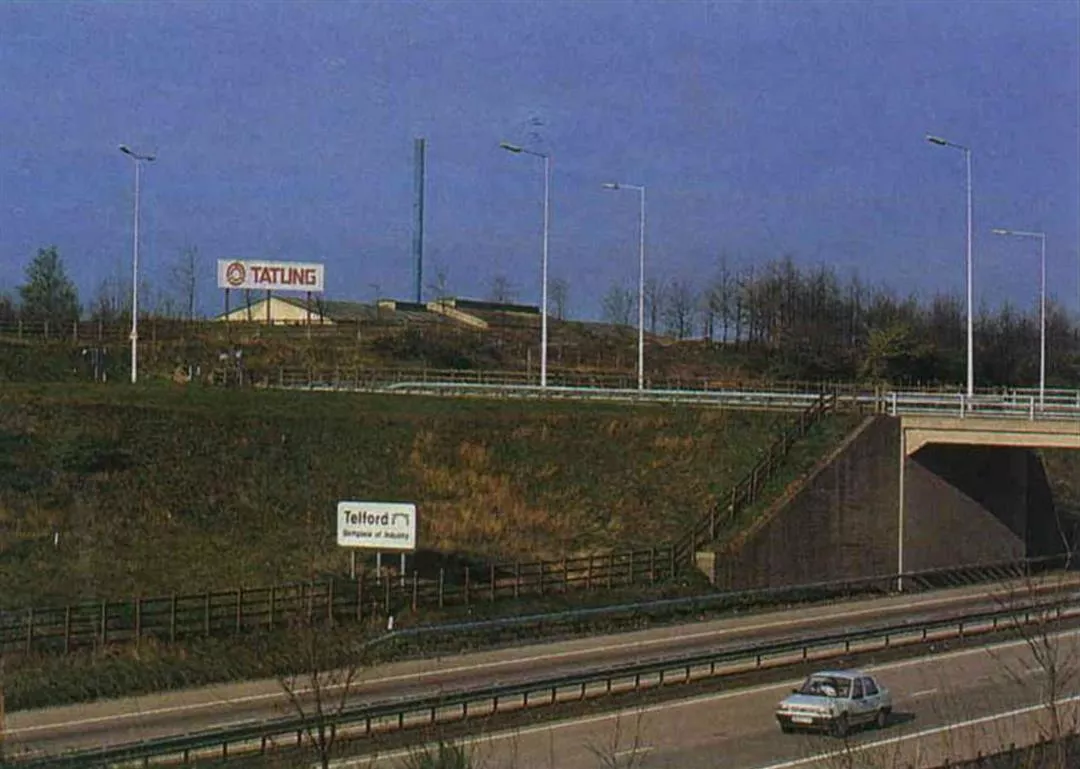
You can see the sign for Tatung from the highway.
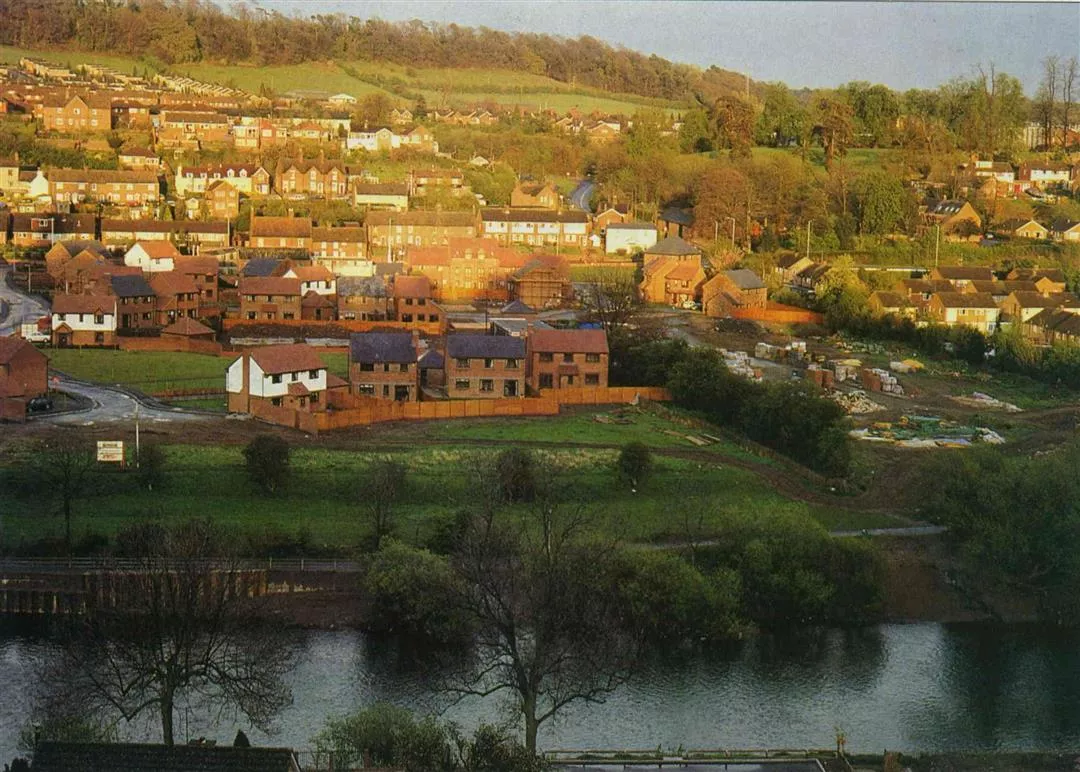
Tatung (U.K.) during its time in Northbridge. The factory has already been torn down and the land converted to leisure use.
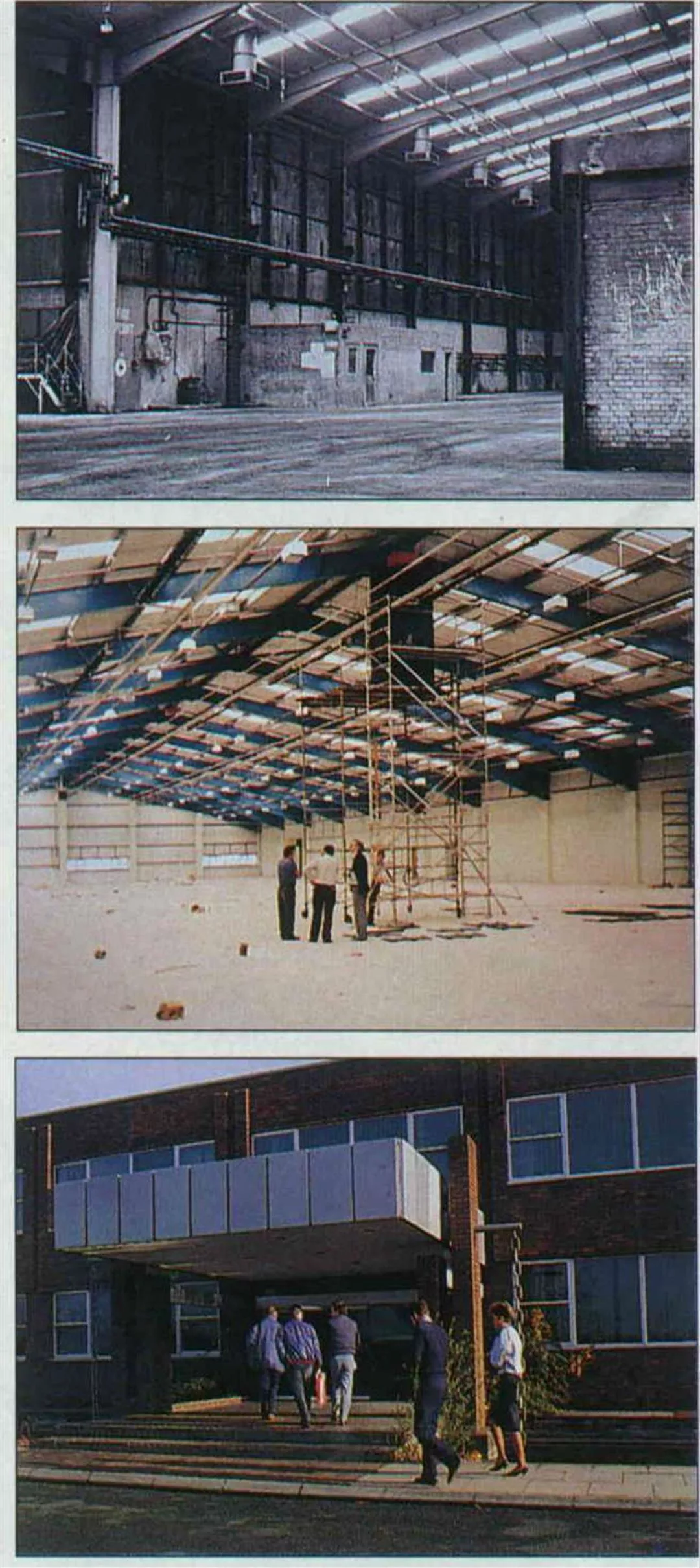
The Telford factory--before, during, and after.
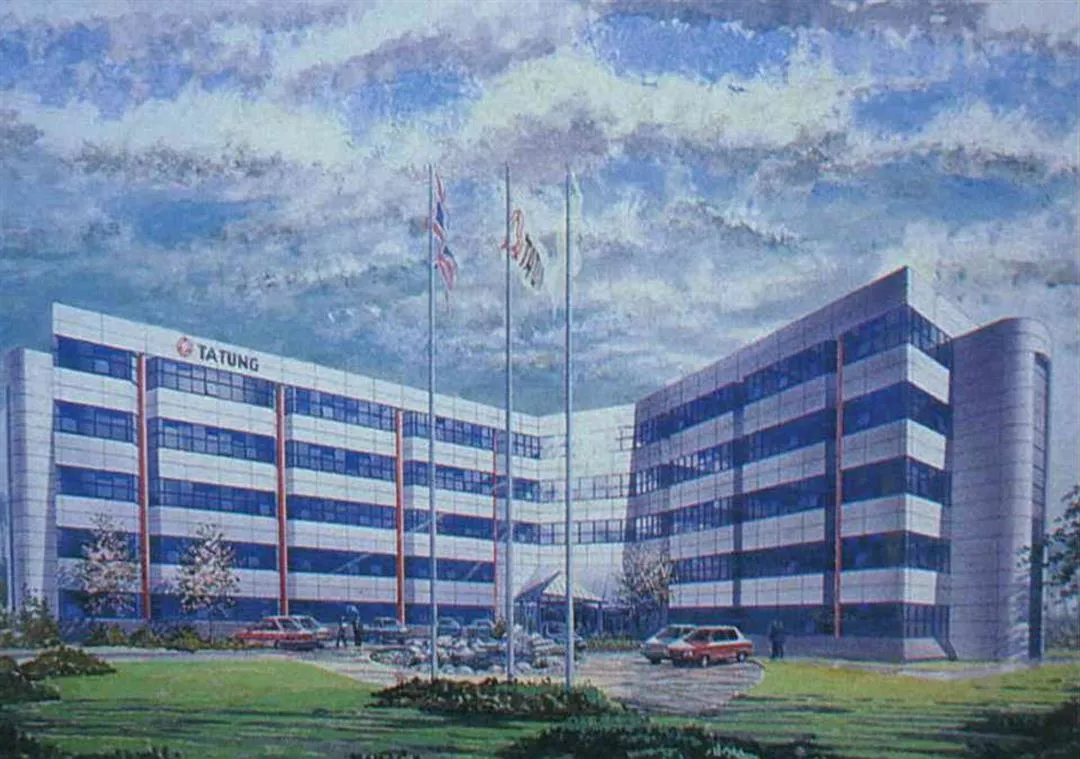
This is the plan for Tatung's future office building.
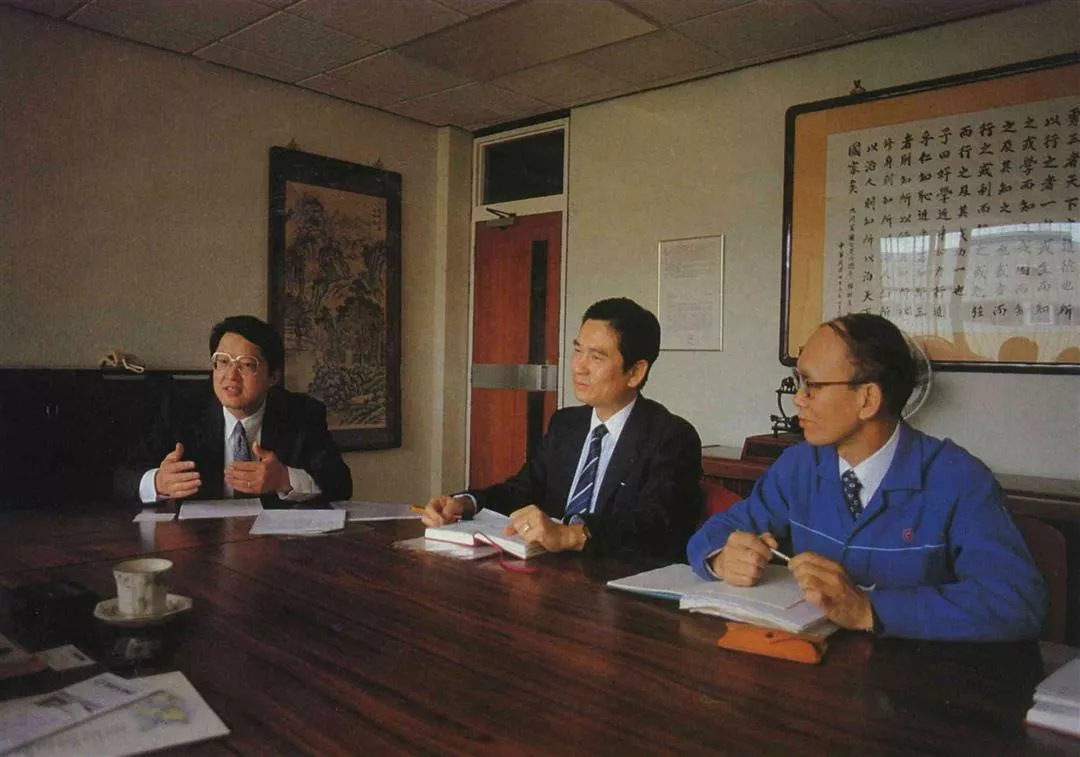
This is the "iron triangle" of Tatung (U.K.) Ltd. At left is factory chief K.Y. Wang. At center is Senior Vice President C.P. Chou.
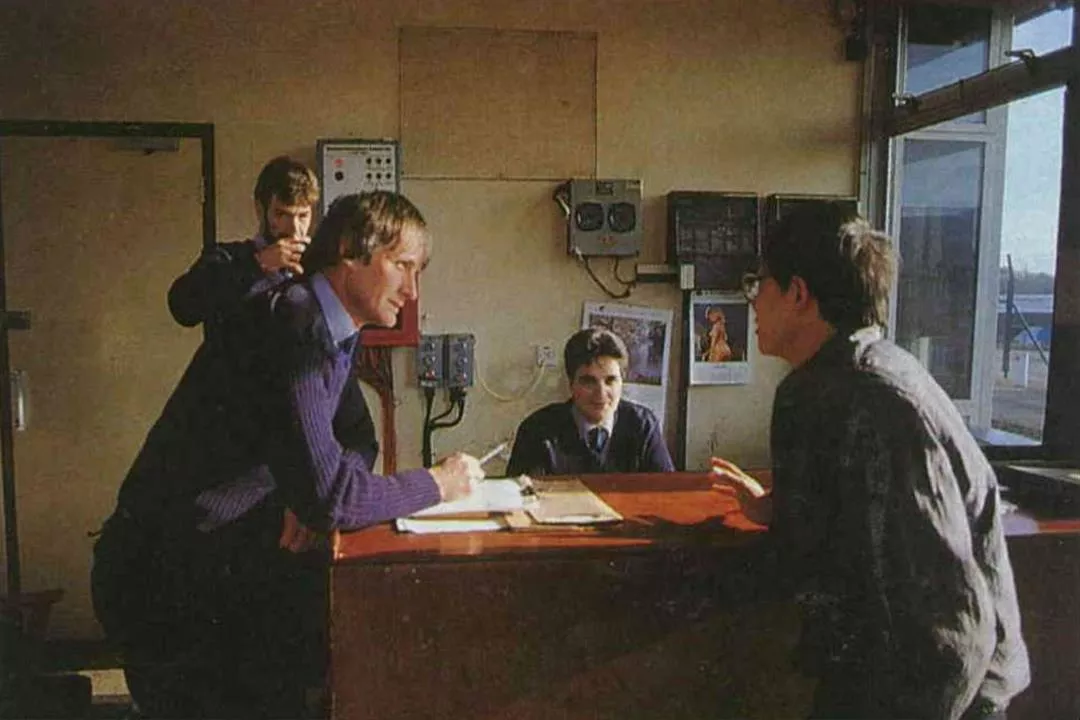
On Easter the guard house was the most exciting place to be.

The factory injunctions are in both Chinese and English. But these aren't the calligraphy of Lin Ting-sheng, but rather the handiwork of the Chinese national co-workers.
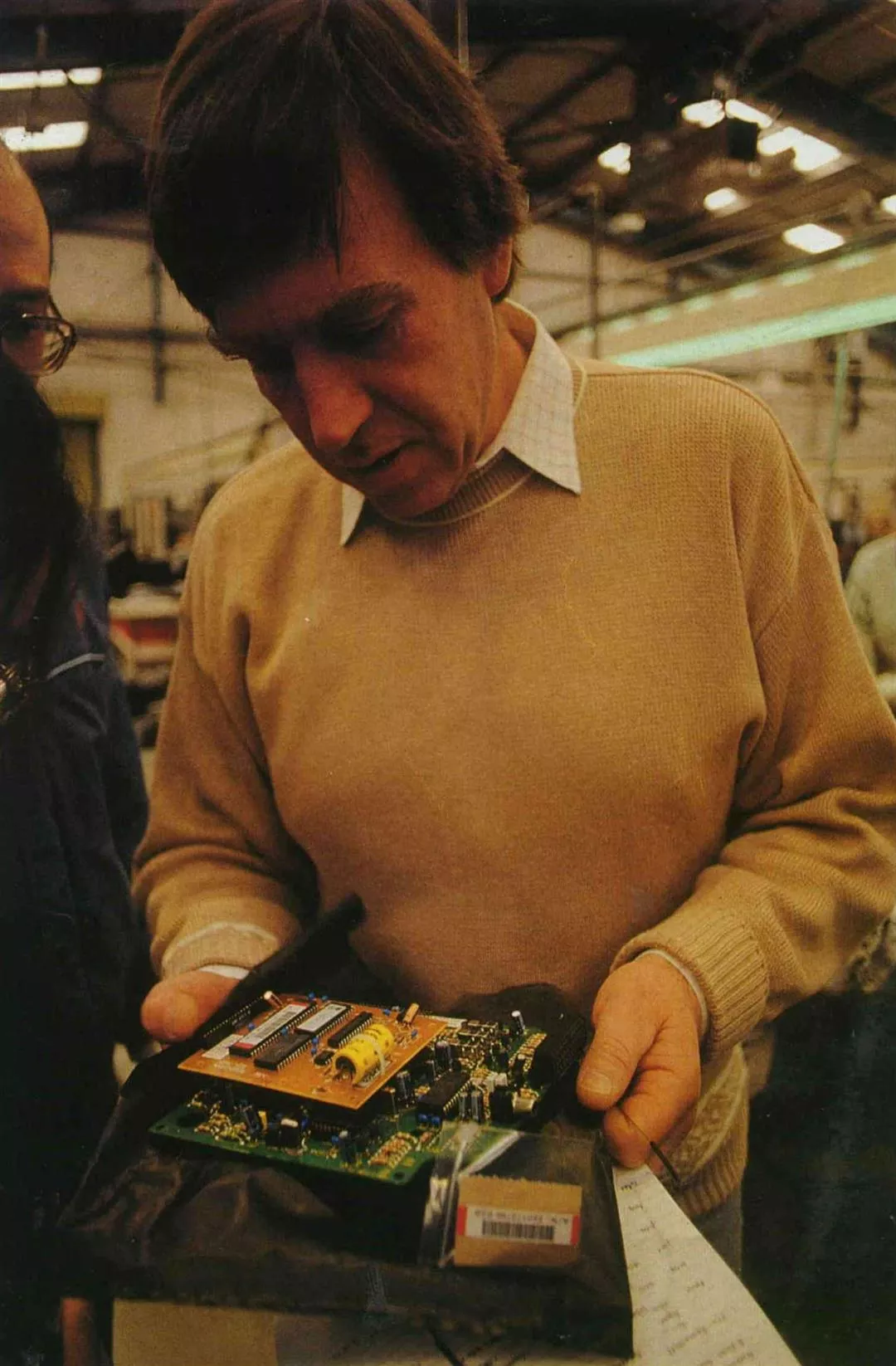
Tatung's English factory manager is looking over key parts for the satellite television receivers.
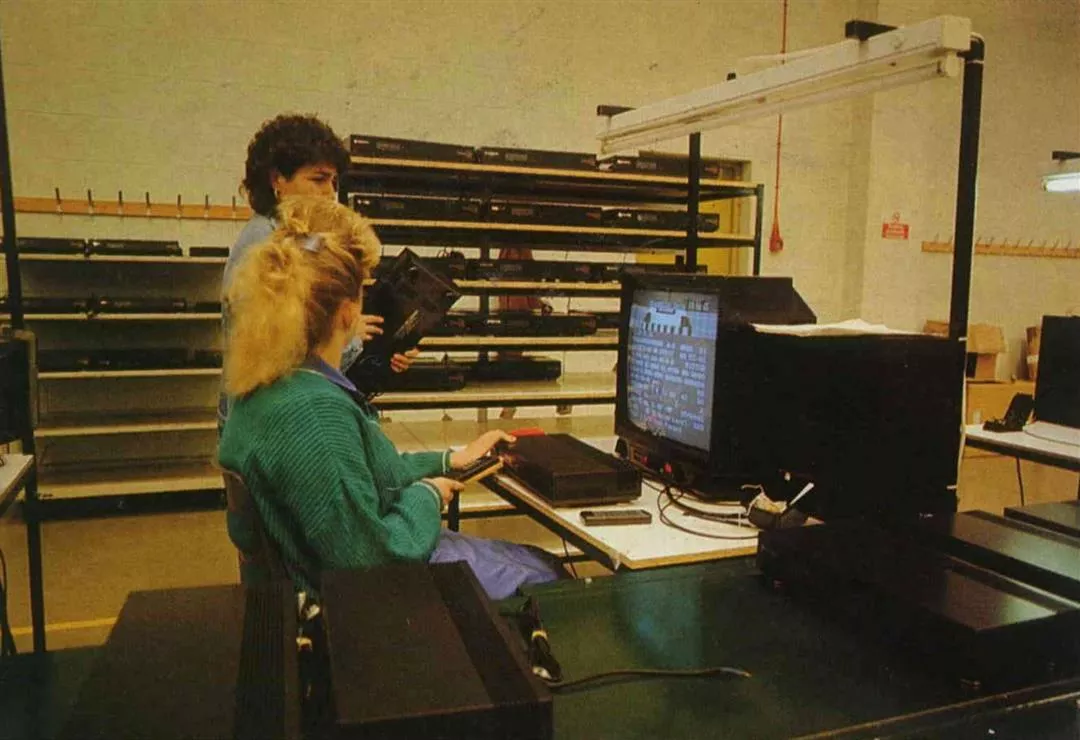
Products about to go through final testing.
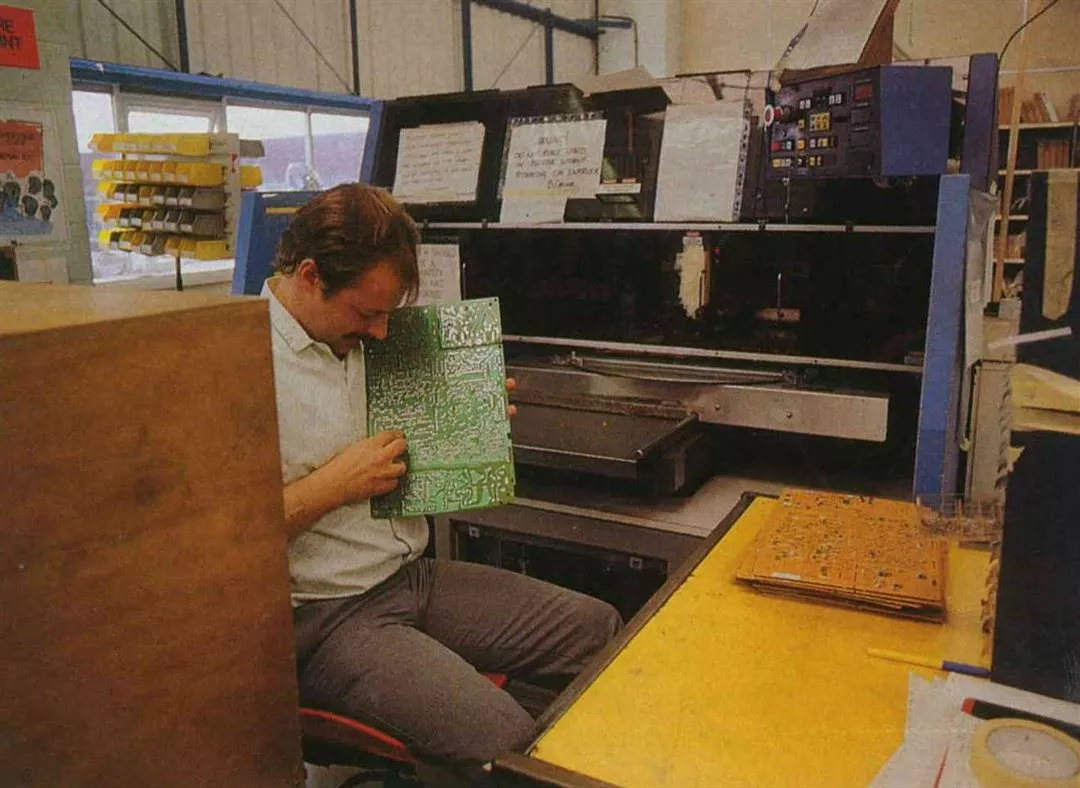
Tatung (U.K.) has its own R&D department.
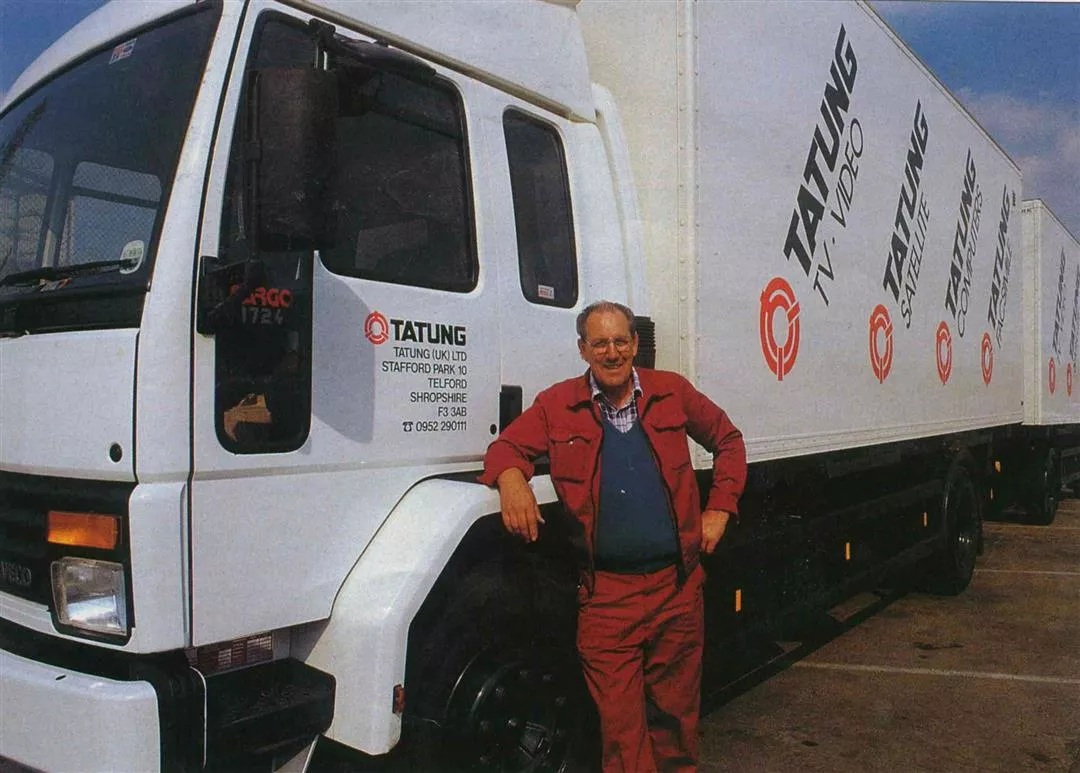
Tatung (U.K.) is already a "legal resident" of Telford.
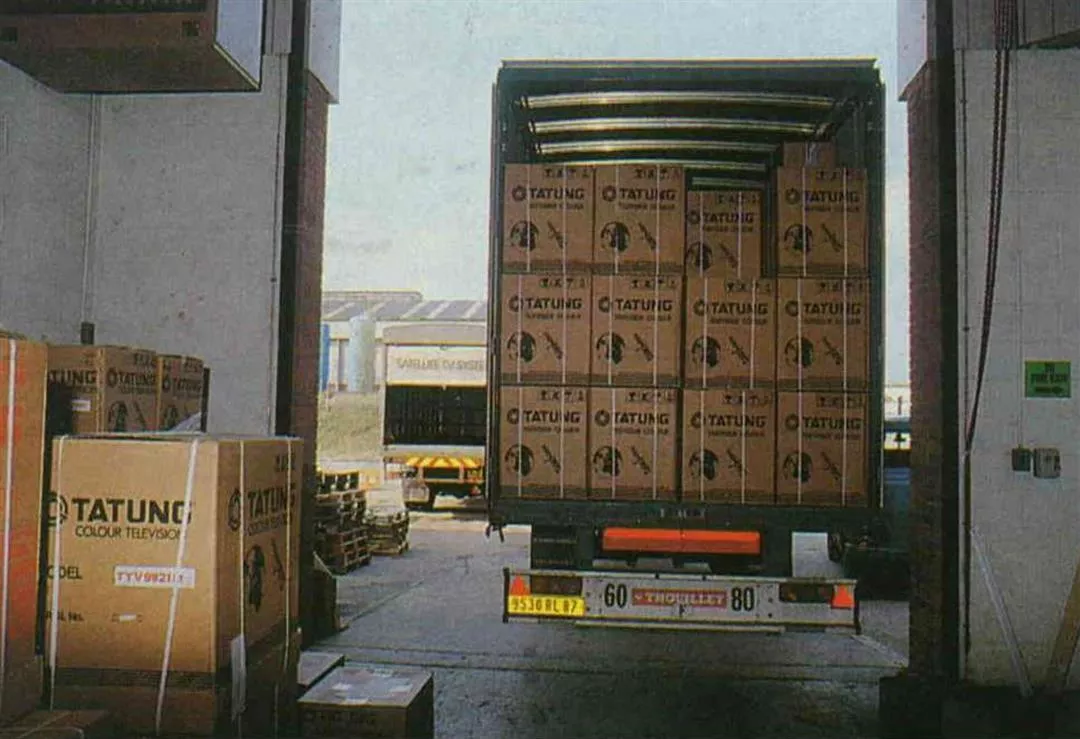
Tatung's accomplishments in England have let Chinese know that Europe is not so for away.